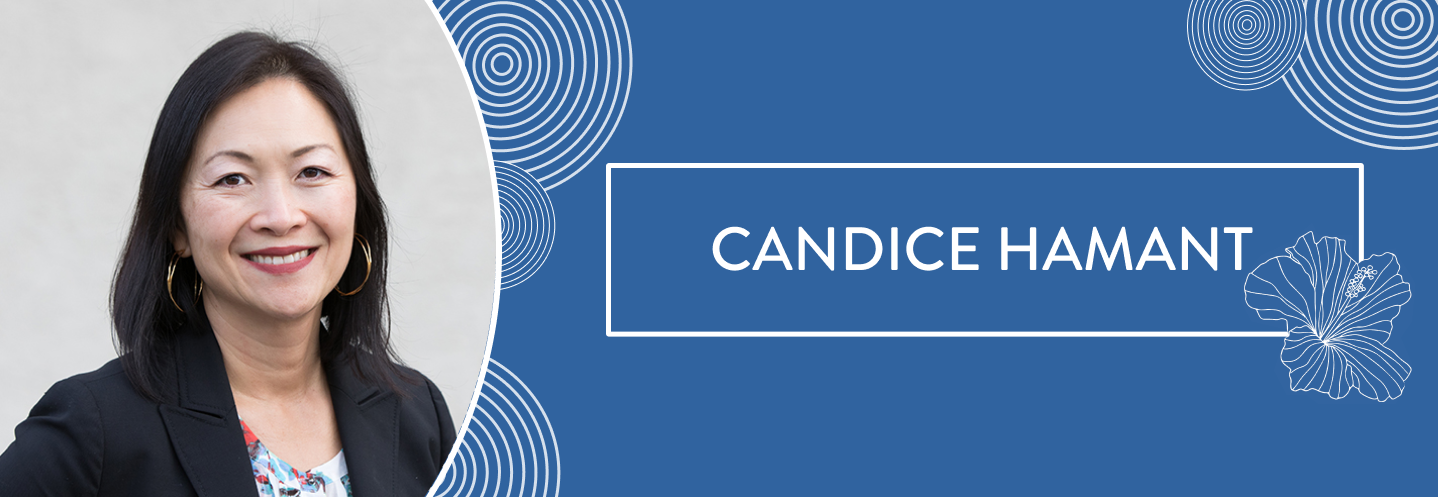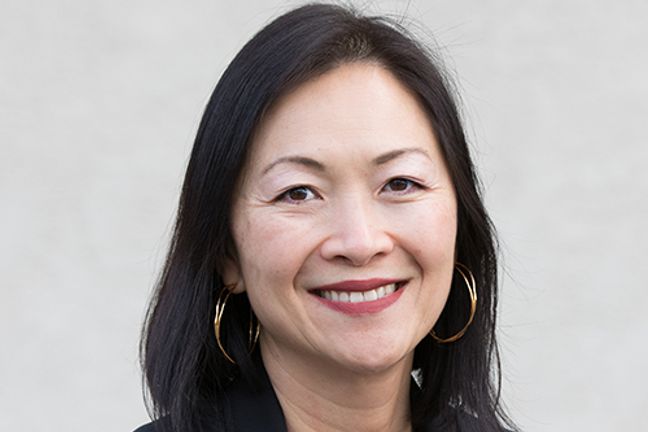
What does being a member of the AAPI community mean to you?
CH: I think what resonates with me most about being a part of the AAPI community is the richness of diverse experiences. I didn’t grow up here, but there are things that come to mind from the way I was raised in Vietnam as well as living with parents born and raised overseas with a different heritage. I feel I have a richness within me that provides a lens for a deeper perspective on community interactions.
What are you most proud of as part of the AAPI community?
CH: What I’m most proud of coming from an Asian American background is knowing a different language, which gave me fluency in a different culture. Having this awareness of a different heritage and being able to pass it on to my children who were born here and don’t share my perspective is what I’m most proud of. I tried to teach my kids Vietnamese—they understand a little, but do not speak the language themselves. That never stops my mom, a native Vietnamese speaker, from speaking to them in Vietnamese when we visit.
How has the AAPI community further enriched your life?
CH: It allows me to have more compassion for other cultures and an increased understanding of people from different backgrounds. With the hate crimes against the Asian population and everything occurring against the Black community, it gives me more perspective to not only see “this side,” but also the “other side,” and allows me to better understand other perspectives. The AAPI community has certainly enriched my life as I am able to speak about my perspective and my journey of coming here and being raised and living in the United States as an Asian American.
How has your heritage influenced who you are as an attorney?
CH: I have leveraged my culture to reach specific members of the community that have been underserved in the legal field and beyond. One of the things I led as a founding member and past president of the Vietnamese American Bar Association of Northern California (VABANC) was providing assistance to flood victims in Houston when the levee broke in 2017 following Hurricane Harvey. There is a huge Vietnamese American community in that area, and many people don’t know they can access assistance or make a claim with an insurance company—that getting relief is possible. People don’t naturally know that, and even if the information was provided to them by the Federal Government, they might not understand it. We mobilized a team of attorneys outside of Houston to answer questions and help the community. I think that my heritage, background, and legal knowledge helped me launch that initiative.
Have you seen opportunities to further diversify the Tyson & Mendes community?
CH: I participated in a Diversity & Inclusion meeting recently. Kevin Yee, the attorney first highlighted in this interview series, led the meeting. He and I work very closely managing the CBRE account, and we’re in touch regularly. In fact, after he interviewed with you, he texted me to say, “You should volunteer for this!”
I appreciate Tyson & Mendes’ efforts to further the firm’s diversity and have personally leveraged these efforts by marrying two initiatives management introduced: one was to hire more attorneys nationwide; the other was after hearing the firm would pay for attorneys’ memberships in the local and ethnic bar associations. I combined these two and ultimately promoted the initiatives through VABANC and the National Conference of Vietnamese American Attorneys (NCVAA). I posted that we want to increase the number of Asian Americans at Tyson & Mendes and Asian Americans in leadership positions to highlight that Tyson & Mendes is hiring across the country. I deeply appreciate Tyson & Mendes giving me and other attorneys opportunities to use the firm’s initiatives to meaningfully further diversity in the legal field.
Is there anything you wish your work community knew about the AAPI community and culture?
CH: There is an additional layer and perspective the AAPI community and culture can bring to a case. Having this diversity on a case, in the office, in front of the bench, or on the bench, can truly make a difference for our clients and each other.
What does diversity in the legal profession mean to you?
CH: Diversity in the legal profession would mean having more people who look like me and come from my heritage. I specialize in property damage and construction litigation. I am often the only female attorney and minority in the room. Having more women and Asian Americans in positions of leadership is what diversity looks like to me.
What has been the most rewarding moment of your career?
CH: Leveraging my training as an attorney to offer help to community members has been the most rewarding aspect of my career. Before I became a full-time litigator, I worked in immigration law. I assisted refugees and asylum seekers from other countries. I am grateful to be able to use my background and knowledge to offer my expertise to help the community.
What advice do you wish you had given yourself as you began your career?
CH: Be bold. Just go for it. This is fitting with my personality and culture—I was raised to color within the lines, stay in a single lane, and check all the boxes. Go outside the lines, try a different lane, chart your own list. Commit to figuring out what you really want and challenge yourself to reach your goals. Never give up.

 Featured: Candice N. Hamant
Featured: Candice N. Hamant
 Cannabis Workers Allege Quota to Trim 4 Pounds a Day Violates the California Labor Code
Cannabis Workers Allege Quota to Trim 4 Pounds a Day Violates the California Labor Code
 The Ninth Circuit Reminds Us: Every Word Matters
The Ninth Circuit Reminds Us: Every Word Matters
 NO WAY, PRO SE! The Consequences of Abusing the Judicial System as a Pro Se Litigant in Colorado
NO WAY, PRO SE! The Consequences of Abusing the Judicial System as a Pro Se Litigant in Colorado
 Victim of Financial Mismanagement or Unlawful Retaliation? New Jersey City University Program Founder Claims School Retaliated After Reporting Alleged Sexual Harassment
Victim of Financial Mismanagement or Unlawful Retaliation? New Jersey City University Program Founder Claims School Retaliated After Reporting Alleged Sexual Harassment
 “Real Housewives” Gets a Reality Check
“Real Housewives” Gets a Reality Check
 Missing a Chapter: Insufficiency of Expert Deposition Testimony in Medical Malpractice Litigation
Missing a Chapter: Insufficiency of Expert Deposition Testimony in Medical Malpractice Litigation
 Crash Course: Why Summary Judgment Misses the Mark in Illinois Multi-Cause Limousine Crash Collision
Crash Course: Why Summary Judgment Misses the Mark in Illinois Multi-Cause Limousine Crash Collision
 Bitter Truths: Lead, Cadmium, and Defective Pleadings in California Chocolate Class Action
Bitter Truths: Lead, Cadmium, and Defective Pleadings in California Chocolate Class Action
 The Law of Unintended Consequences: Including Insurance Brokers in Litigation Strategy Communication May Waive the Attorney-Client Privilege
The Law of Unintended Consequences: Including Insurance Brokers in Litigation Strategy Communication May Waive the Attorney-Client Privilege